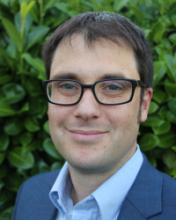Situated on an Arctic barrier island along the northwest coast of Alaska is the village of Kivalina, an Iñupiaq community of about 500 people. Colleen Swan, city administrator and coordinator of its volunteer Search and Rescue organization, is an advocate for her community and has always taken concerns about Indigenous health, environment and identity seriously, and works to seek out solutions. Recently, she was approached by a curious neighbor with a perplexing observation.
“An elder in the community has gone outside every night of her life to look at the stars,” Swan says, “and she told me one day, years ago, that the stars have moved. How could that happen? What could cause that?”
The question wasn’t rhetorical, but was directed towards P. Joshua Griffin, jointly appointed assistant professor at the University of Washington’s School of Marine and Environmental Affairs and American Indian Studies department, and his team of graduate researchers. The group, known as the Engaged Ethnography Lab (EEL), is collaborating with Swan, her brother Reppi, and other community members on a UW EarthLab-funded project to create a hazard assessment for the village as it faces drastic climate change impacts. As part of the ongoing collaboration, the members of EEL set about investigating the question asked by Swan and her community.
“I’ve had the privilege to work on environmental projects in Kivalina for the last eight years,” says Griffin. “One of the first things I learned — and it was Joe Swan Sr. [Colleen’s father] who taught me this — is how important it is to address climate change in ways that support the long-term goals and values of the community, as diverse as they are.”

After talking to Reppi for years about his work responding when a hunter falls through the ice, or putting sandbags around critical infrastructure during severe storms, Griffin and Swan started the project as a way to support Kivalina’s efforts to build organizational capacity while investigating whether the technical resources of UW polar science could be applied to questions on the ground. “We call the project ‘Polar Science at a Human Scale,’” says Griffin.
We're so excited about the work Professor Griffin, and his students, are doing with the Kivalina community. Check out the College of the Environment's news page to read the full story.
